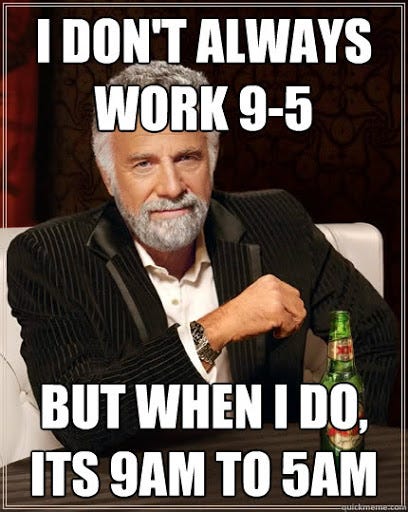Before I dive into self-abandonment, I wanted to let you all know that the 30-day free trial for The Healing Hype community ends this Friday, February 12th. I’ll be adding more perks to the community which means I’ll be raising prices soon. So if you think this community can support you, listen to your gut. It’s always good to join sooner than later because your rate will be locked in for life! And if you subscribe monthly, you can cancel at any time.
As a reminder, the community includes:
Access to all healing + justice posts, including healing and justice research + reflections, an advice column, meditations, and more
Access to 1 workshop per year (this will be increasing soon, wink wink)
Attendance to Seasonal Healing Circles
For BIPOC: Attendance to BIPOC-only Healing Circles
Ability to ask advice to be answered in my advice column
As I mentioned, I will be adding more soon, so hit the “subscribe now” button below and try it out for 30 days (or just join if it excites you that much!)
The National Alliance on Mental Illness (NAMI) described self-abandonment in a blog post:
Essentially, self-abandonment is when you reject, suppress or ignore part of yourself in real-time. In other words, you have a need or desire you want to meet, and (often on the spot) you make the decision not to meet it.
I can’t tell you how many times I have abandoned myself in the present and past. Even mini-abandonments, like saying yes to doing an activity with a friend when I’d rather not, have deep roots. I vividly remember the first time I abandoned myself with my now ex-husband, convincing myself that his gaslighting was actually him “helping” me. I’ve abandoned myself in professional settings by dismissing microaggressions and assimilating to whiteness. As a child, I didn’t want to abandon myself, but conditioning, critique, and the pressure to know “what I wanted to be when I grew up” made me live in a world of “I should” instead of a world of “I am”.
Can you relate?
There are a lot of ways I’ve seen self-abandonment described from different schools of thinking, frameworks, and contexts. I’ve seen it described as a defense or coping mechanism, a trauma response, people-pleasing, cultural norms, patriarchy, heteronormativity, and assimilation to whiteness.
With all of these come capitalism, an insidious force we are told “is just the way things are” and we just have to get back to the “grind”, concepts that are teased and inadvertently reinforced by the media in TV shows like The Office, comic strips like Dilbert, and oh so many memes.
It didn’t take me much effort to do a quick google search to find these memes. These were just two amongst a plethora of evidence to prove how we laugh at the ways we push ourselves to overdo and underspeak. Because if we do, we might be risking our livelihood. And for some people, this is literally survival.
I’ve been listening to Jenny Odell’s How to Do Nothing on audiobook and she talks about the privilege of having capacity to refuse and consequences if you do so in a capitalistic system. These consequences can be dire for those with marginalized identities, especially if you are low-income. Or it can place you in a position where your refusal drops you to a lower-income bracket because you are no longer “hireable”. Sadly, being a cog in the system means keeping your mouth shut to keep it going. And since capitalism is everywhere, we participate in it whether we refuse or not. The consequences will look different, and many (understandably) aren’t willing to take the risk.
How does self-abandonment start?
Learning to abandon ourselves starts young. In school, we follow the rules, and we are punished if we don’t. I’m sure we can all remember the “bad” kids in our elementary classrooms, whether we associated with them, didn’t associate with them, or were them. I wondered what was wrong with the rule breakers when I was a kid, but as I’ve grown older and learned about trauma-informed care, I have a new lens on obedience and punishment. I’ll save that for another post, but my point is that I have a respect for people who refuse. Sometimes this is a function of trauma, but other times it’s a function of self-respect (sometimes it’s both). You can call this boundaries, integrity, or principles. You can also call it staying true to yourself, the antithesis to self-abandonment.
Self-abandonment is also familiar within family systems. My parents were loving and gave me a secure home. But so many of my actions were met with criticism and perfectionism. One time when I was about 6 years old, I made a bunch of paper pillows for my mom. I partially stapled two pieces of paper together, stuffed it with little papers, and finished stapling it all around. I offered it to my mother as a genuine gift. And then I offered another…and another. Perhaps my mom likened this to a cat bringing its owner a dead mouse, and I can understand. But the last time I ever made a paper pillow was also the last time I offered it to my mom because she yelled at me, told me it was stupid, and told me to stop making them. This might seem like a minor example, yet I remember it vividly. My psyche learned that the things I made were not cute or appreciated. I learned to abandon something that truly made me happy from creation to gift. And I doubted so many things I did ever since.
From family interactions to school bullies, from racism to homophobia, self-abandonment lives on many levels. While compliance with systems is easier if you are white, heterosexual, able-bodied, middle or upper class, and identify as a man, and refusal isn’t punished as much, that doesn’t mean you are immune to abandoning yourself. However, having other lived experiences from these normative identities likely defaults you into self-abandonment. Read that again. When self-abandonment is your default, sometimes you aren’t aware of any other way to be.
Your default response is a trauma response. People pleasing is survival. And assimilation is in the air you breathe. Self-abandonment can feel so normal that it feels like it’s a part of your personality. You can’t find the line from where “you” started and “not you” takes over.
Now what?
None of this is to say that there isn’t a way to work through self-abandonment. Of course you can. But first, it’s important to identify the forces that place you in this position. Look at global systems, social systems, and your family system. Identify traumatic events in your life, ones that happen once and ones that happen over time, especially in the context of systems.
Process these with a trauma-informed therapist, coach, or a trusted friend or family member who has the capacity to be present for you. Find community. Identify where you are in your process, have compassion for yourself, and accept your reality. There is nothing wrong or broken with you. While society might say you don’t belong, you do belong. You belong because you are here.
Learn about the nervous system and start identifying what triggers you and what brings you glimmers. These are the stepping stones to living your truth.
You may have to make decisions that aren’t in your truth for the sake of your survival. I cannot tell you what these decisions might be because we all have so many different identities and life circumstances. But as you learn to stop abandoning yourself, you will also start to trust yourself. And as this happens, you’ll feel more authentic in the decisions you make.
In the end…
Abandoning yourself can look so many ways. Lately for me, it has been saying yes when I mean no for little things that are mostly inconsequential, yet still significant. Other times it’s loosening a boundary because I don’t want to make the emotional effort to enforce it. This happens to me, and it will happen to you. We are imperfect beings—let’s keep it that way. Remember, you can always make a different decision next time.
While capitalism, racism, sexism, and ableism will continue to have its way with us, that does not mean you don’t have power. Instead of resigning yourself, ask yourself the following questions:
What is my responsibility to myself? To society?
How is my responsibility liberating?
What small step can I take to harness my power?
Who can I trust in my community?
How can I stay true to myself this hour? This day? This week?
Dig deep, think big, and start small.
If you resonate with this, feel free to comment on the post or reply to me! I always love to hear what you think.












Share this post